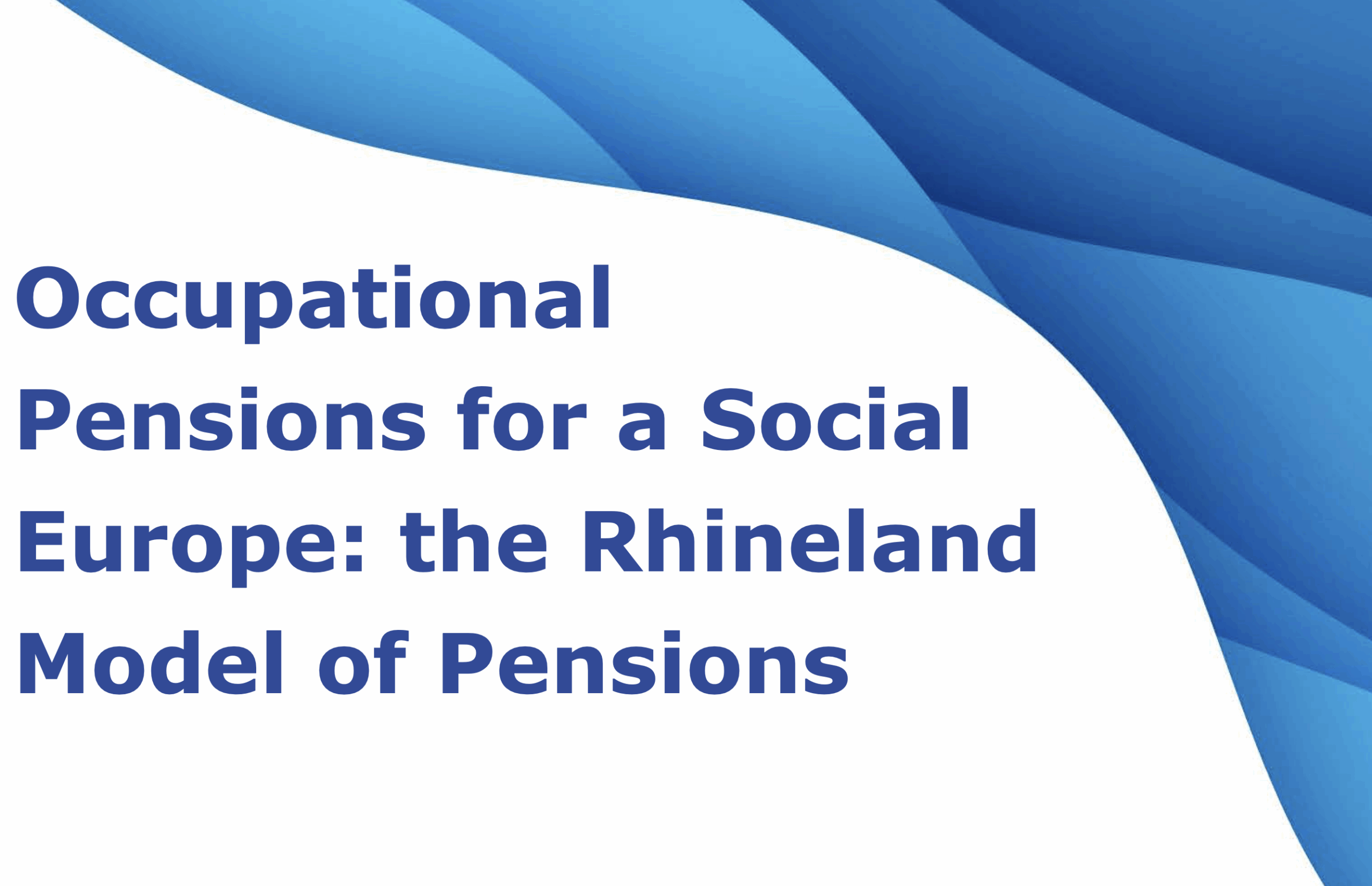ENGLISH BELOW – Hoe ziet de toekomst eruit van tweedepijlerpensioenen in Europa? Een visie daarop is vandaag gepresenteerd door de Pensioenfederatie, samen met de Duitse aba, het Belgische PensioPlus en de Oostenrijkse WKO. Onder de titel “Occupational Pensions for a Social Europe: the Rhineland Model of Pensions” pleiten deze nationale pensioenkoepelorganisaties gezamenlijk voor versterking van het Rijnlandse pensioenmodel.
Ger Jaarsma, voorzitter van de Pensioenfederatie: “Hiermee laten we samen zien dat sterke beroepspensioenen niet alleen goed zijn voor werknemers en werkgevers, maar ook voor de samenleving als geheel. We combineren sociale bescherming met investeringen die hard nodig zijn voor de toekomst van Europa.”
Sociaal én competitief
De publicatie gaat uit van tweede pijler pensioenen, gestoeld op solidariteit, collectiviteit en de rol van sociale partners. De organisaties leggen uit hoe deze pensioenen kunnen bijdragen aan oplossingen voor twee urgente uitdagingen: de vergrijzing en de sterke behoefte aan strategische investeringen. In tegenstelling tot marktgedreven modellen, positioneert het Rijnlandse model pensioenfondsen als sociale instellingen die goede pensioenuitkomsten combineren met langetermijninvesteringen in bijvoorbeeld infrastructuur en groene energie.
Staatspensioen zoals AOW wordt door omslag gefinancierd. Maar dat staat onder druk door vergrijzing en het veroorzaakt budgettaire problemen. Burgers accepteren echter niet zomaar latere pensionering en/of lagere pensioenen. Wat daar meer perspectief kan bieden is een geleidelijke opbouw van kapitaalgedekte en tweedepijlerpensioenen.
Oproep aan EU-beleidsmakers
De pensioenkoepels doen een duidelijke oproep om een sterker sociaal kompas te verankeren in Europees pensioenbeleid. Zij vragen onder meer om:
- automatische deelname aan pensioenregelingen,
- transparante en begrijpelijke pensioenoverzichten,
- een stevige plek voor pensioenvoorziening binnen het Europese begrotingskader, om zowel financiële houdbaarheid als toereikende pensioenen te borgen,
- en maatregelen om de genderpensioenkloof te verkleinen.
Concrete aanbevelingen
De visie is tot stand gekomen in nauwe samenwerking tussen de vier nationale pensioenorganisaties. Het document bevat concrete aanbevelingen voor Europese instellingen en lidstaten, met respect voor nationale verschillen en bestaande structuren.
De volledige tekst van “Occupational Pensions for a Social Europe: the Rhineland Model of Pensions” kun je hier downloaden.
European Pension Federations present shared vision for the future
What lies ahead for occupational pensions in Europe? Last night the Dutch Federation of Pension Funds, Germany’s aba, Belgium’s PensioPlus, and Austria’s WKO jointly unveiled their vision under the title “Occupational Pensions for a Social Europe: the Rhineland Model of Pensions.”
The organizations call for a stronger commitment to the Rhineland model, which combines robust social protection with investments that support Europe’s long-term future.
Ger Jaarsma, chair of the Dutch Federation of Pension Funds, explains: “Together we are showing that strong occupational pensions benefit not only employees and employers, but society as a whole. They provide security while also channeling investments into areas Europe urgently needs, such as infrastructure and sustainability.”
Balancing social protection and competitiveness
The paper emphasizes the importance of occupational pensions, which are built on solidarity, collective arrangements, and the active role of social partners. According to the federations, these schemes can help address two pressing challenges: Europe’s ageing population and the growing demand for strategic investment.
Unlike purely market-driven systems, the Rhineland model positions pension funds as social institutions: delivering reliable pensions while investing for the long term in projects like renewable energy and infrastructure.
State pensions such as the Dutch AOW (general old-age pension) are financed on a pay-as-you-go basis. Demographic pressures are putting this under strain, creating fiscal challenges. At the same time, citizens are unwilling to accept higher retirement ages or reduced benefits. A gradual build-up of funded occupational pensions, the federations argue, offers a more sustainable and socially acceptable path forward.
A call to EU policymakers
The pension organizations are urging European policymakers to embed a stronger social dimension in pension policy. Their key recommendations include:
- automatic enrolment in occupational pension schemes,
- clear and accessible pension information for participants,
- more attention for pension provision within the European economic governance framework, to safeguard both sustainability and adequacy,
- and targeted measures to reduce the gender pension gap.
Recommendations for Europe
This joint vision is the result of close cooperation among the four national pension federations. It contains specific policy proposals for European institutions and EU Member States, while respecting national systems and differences.
The full text of “Occupational Pensions for a Social Europe: the Rhineland Model of Pensions” can be downloaded here.





